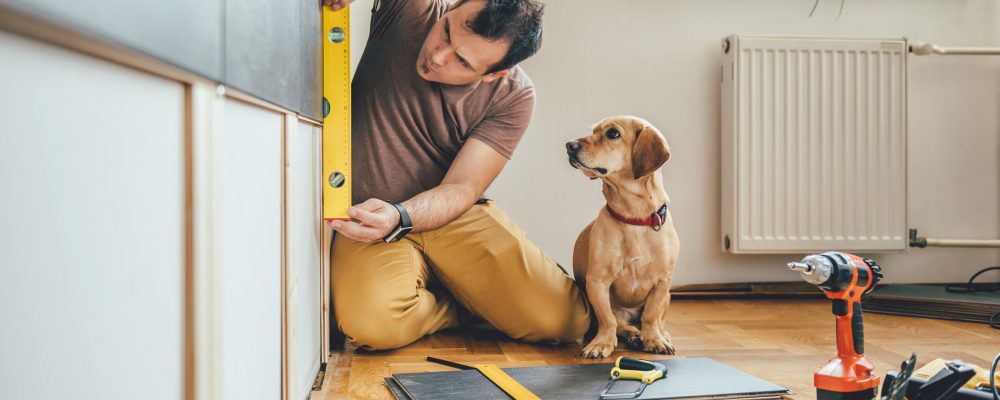
The information provided is based on the published date.
Key takeaways
- Kitchen and bathroom renovations typically cost the most due to extensive electrical and plumbing work and skilled craftsmanship
- It is possible to reduce costs by altering the project scope, but this may involve trade-offs with quality
- It's important to consider additional costs such as property taxes, building permits, labor fees, unexpected issues, and living expenses while the renovation is taking place
- Planning a renovation budget that aligns with your overall financial plan is crucial before starting
Planning on renovating part (or all) of your home and wondering how much it will cost?
Whether you’re a DIY weekend warrior or prefer to leave it to the pros, it won’t be cheap.
But how much? That depends on a lot of factors—starting with the type of room(s), quantity and quality of materials used, and the level of labor involved.
Here’s a breakdown of costs for the most commonly renovated rooms and their return on investment ranges. As a bonus, we’ve included expected costs for other home projects and a list of expenditures most people forget to add to their budget.
Costs vary by type of room
If you’ve watched just one home renovation show, you probably know that kitchens and baths cost the most. These labor-intensive projects typically require skilled craftsmanship to construct custom countertops and cabinets and extensive electrical and plumbing to make everything work.
Perhaps the silver lining to any renovation is that you can alter the project scope and reduce costs at any time (but preferably before work begins). Of course, this will involve trade-offs with things like the quality of appliances and finishes, so keep that in mind.


Sources: HomeAdvisor | Houzz | Rocket Mortgage | Realtor.com
Project cost estimates
If you’re looking to renovate other less-exciting but equally important projects in your home, here is a breakdown of the most common exterior and interior costs. (Costs may be much higher or lower due to the size of your house, material quality, amount of labor, and more.)
- Central air: $3,800 – $7,600
- New windows: $4,500 – $20,000
- Furnace (heat pump): $2,800 – $11,000
- Siding: $8,420 – $54,250
Sources: Architectural Digest | Forbes HOME | Angi
How much do people spend on average for renovations?
National average renovation expenses vary significantly among industry experts due to the myriad variables at play. To that end, it’s best to consider all estimates and decide which number best fits your situation.
According to research by Houzz in 2022, Americans spent an average of $18,000 on home renovation projects in 2021, while the top 10% spent a whopping $100,000. Recent homebuyers spent the most, averaging $30,000, then short-term homeowners, who spent approximately $19,000, and long-term homeowners, who spent around $15,000.
In contrast, HomeAdvisor reported average renovation costs between $17,947 to $78,308, with a national average of $48,049.
Lastly, the National Association of Home Builders found that new homebuyers typically spend around $12,000 on renovations, $5,000 on furnishings, and $4,000 on appliances in the first year of ownership. When it comes to purchasing existing real estate, the expenses decrease significantly. Buyers typically spend around $6,000 on renovations, $2,500 on furnishings, and another $2,500 on appliances.
What extra costs should I consider?
When it comes to renovating a house, there are more than just the material costs to consider. Hidden expenses can catch homeowners off guard and impact the project’s overall cost. According to the 2020 US Houzz & Home study, approximately 31% of homeowners exceeded their renovation budgets in 2019. It’s important to take these factors into account to ensure you have an accurate understanding of how much it truly costs to renovate a house.
Taxes
Increasing the value of your home is great, but higher valuations may result in increased property taxes. While this likely won’t happen immediately following your renovation, it’s possible that you might see a tax bump the next time your house is assessed. Assessment schedules vary from state to state, but they usually occur every one to five years. Check with your local tax department to see how frequently properties in your area are assessed.
Permits
Building permits can range between $50 to $300 for small plumbing and electrical jobs and $500 to $2,000 for bigger, full-scale renovations. Fees vary based on square footage, a flat rate, or construction value. Permit approval and issuance can take approximately two weeks.
Labor
Labor costs are a substantial expense that must be included in your budget from the onset. Types of contractors you might use include architects, engineers, electricians, plumbers, drywallers, interior designers, and the list goes on. Electricians and plumbers alone will make up around 10 to 20% of your labor budget.
Surprises
No plan goes off without a hitch. Home improvement budgets commonly go over budget due to unforeseen issues that always seem to arise just when things are going smoothly. So, to plan for the carpenter ants making a meal out of your studs or the dangerous knob-and-tube wiring in your basement that was installed in the 1900s, it’s best to set aside 10 to 20% for contingencies.
Cost of living in a dysfunctional home
Where will you bathe when your only bathroom is stripped to the studs? How long are you willing to order in or eat out, and can you afford to when your kitchen is a pile of rubble?
You have to factor these into your budget, and it’s not just about money, either. It can be pretty unsettling to have random people operating loud, heavy machinery in your house every day, not to mention the dust and debris that will inevitably end up in every nook and cranny of your living space. Consider how your daily routine might be compromised and plan accordingly.
Keeping yourself honest: Does a renovation align with your overall financial plan?
There’s no doubt your quality of life can significantly improve after a home renovation. But does it align with your current and future goals?
It’s important to stay true to your financial plan and not get caught up in the excitement of a renovation project. Consider the potential return on investment and whether it aligns with your long-term goals. Will you be in this house for several years to come, or do you plan on selling soon? Before embarking on a home renovation, essential questions like this must be considered.
Every decision is a financial decision, and you shouldn't have to make them alone. Schedule a free call with Facet today to discuss your goals and how a home renovation fits into your overall financial plan.
Our team of experienced advisors can help you weigh the pros and cons and ensure that any decisions align with your long-term objectives.
Facet
Facet Wealth, Inc. (“Facet”) is an SEC registered investment adviser headquartered in Baltimore, Maryland. This is not an offer to sell securities or the solicitation of an offer to purchase securities. This is not investment, financial, legal, or tax advice. Past performance is not a guarantee of future performance.


